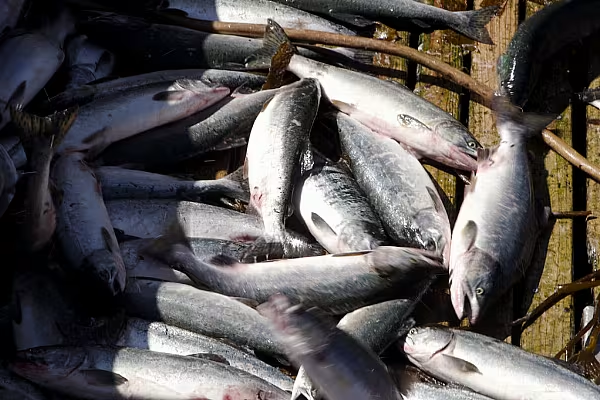The British fishing port of Peterhead has seen an 18% drop in the volume of fish landed since the start of the year, reflecting difficulties transporting seafood to mainland Europe since new post-Brexit customs checks started on 1 January.
Many fishermen have been unable to export to the EU since catch certificates, health checks and customs declarations were introduced at the start of this year, delaying their deliveries and prompting European buyers to reject them.
British fishermen protested outside parliament on Monday, and some British fishing boats have been landing their catch at ports in Denmark to avoid delays.
The volume of fish landed at Peterhead in northeast Scotland, Britain's biggest fishing port, has fallen to an average of 4,280 boxes a day so far this month, according to a Reuters calculation from daily catch data.
This is down from 5,225 boxes a day in the first three weeks of December and 4,765 boxes a year ago. A box normally holds 30-45 kg of fish (66-99 lb), depending on the species.
'Exporters Crippled'
"Europe's biggest fish market in Peterhead (is) like a ghost town. Boats tied up, exporters crippled," James Withers, chief executive of the trade body Scotland Food & Drink, said in reaction to a photograph of a near-empty warehouse in Peterhead posted online by a fish supplier.
"No Brexit image of lorry queues. It's the sight of trade that isn't moving at all," he added.
Prime minister Boris Johnson has described the difficulties experienced by the fishing industry as "teething problems" and promised it an extra £23 million ($31 million) of public money.
The fishing industry was meant to be one of the main beneficiaries of Brexit, with many in the sector strongly in favour of cutting ties with the European Union due to hopes of regaining exclusive rights over fish in British waters.











